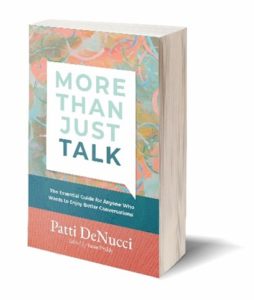So often we’re fed advice and pithy statements by well-meaning peers, mentors, coaches, and experts, not realizing there’s a pretty good chance the advice has been inadvertently misquoted, misattributed, or perhaps even misinterpreted. I think we’ve all been on both the giving and the receiving end of this.
For example, there’s a popular networking nugget, which not surprisingly I heard someone say at a business meeting today. Here it is with a few variations:
- “Be interested, not interesting.”
- “Don’t be interesting; be interested.
- “Better to be interested than interesting.”
This guidance, in the context of conversation, networking, and other forms of socialization, is spot on. It’s usually far more gracious and memorable to focus on listening to the other person, rather than talking endlessly about yourself. But you already know that.
What I want to share here – and even re-examine – is the original interested / interesting quote, where it came from, and what it could mean in addition to the idea of more listening, less speaking.
First, here’s the original quote: “To be interesting, be interested.” – Dale Carnegie

Photo by Tom Hill on Unsplash
Hmmm. That sounds just a bit different than the versions you read above, wouldn’t you say? More on that in a minute.
The quote comes from Carnegie’s evergreen success guide “How to Win Friends and Influence People.” Carnegie was a pioneer in the psychology of the successful personality and wrote this famous book more than 80 years ago. It has sold more 15 million copies worldwide and is considered one of the most influential books of all time.
“To be interesting, be interested.”
I’m guessing Carnegie’s definition of being “interested” means to be an attentive and generous listener and a person willing to serve others – rather than just himself. It’s the counterintuitive idea that being interested in others is what makes a person the most likable, fascinating, and memorable person in the room.
But is it also possible he meant we should “be interested” in general? Interested in living a good life. Interested in continual learning and development. Interested in books, art, science, travel, new experiences, what’s going on in the world, different points of view, and so on? After all, when we’re interested in many things, there’s a better chance we will be more equipped to take an interest in what others have to say. And, in turn, we’ll also have something interesting to add to the conversation to keep it going, expanding, deepening. (This is not the same as being a know-it-all who has to continually comment, dominate the exchange, and one-up others – or prove he’s the smartest person in the room.)
For example, don’t you love it when you’re in a conversation and the other person tosses in a friendly, fun or thought-provoking question? Or recommends a good book or movie? Or shares a tidbit of pertinent information or an amusing anecdote? It’s like adding kindling to the fire when things might be dying down. I certainly enjoy having someone listen to my yammering. But I also enjoy hearing what others have to say, especially if it’s interesting! What’s more, if we were always listening, all the time, wouldn’t that result in that awkward silence everyone dreads?
No thank you!
Perhaps when Carnegie wrote “To be interesting, be interested” he meant to suggest we should be both interested and interesting. But being interested is the definitive Step #1.
Real-world proof: I met a new friend for coffee recently at the enthusiastic urging of a mutual friend. To be honest, I wasn’t sure if this would be a good use of my time, but I trusted the person who served as Benevolent Connector. My new friend, Barbara, and I met at a coffee shop, and from the get-go our conversation was engaging, effortless, enlightening, and expansive. We meandered across a multitude of topics spanning careers, cocktails, kids, and even our favorite cuss words.
After 90 minutes of bonding we glanced at our watches and realized, “*#@&*!! We have to get back to work!” (Lucky for me, this kind of thing is my work!) Before we parted, I had to ask: “What made our “blind date” turn out so well! Why did this work?”
Barbara didn’t hesitate: “Because we were both interested!” Ah, but I have to add that I found her interesting as well.
So, it was being interested and interesting that made our coffee conversation a success. Hmmm. Worth contemplating.
What are your thoughts on being “interesting” versus “interested”? What roles have these played in your most meaningful and memorable conversations? Which one do you think is most important? Surely there’s lots to discuss and debate here.
Please share your thought in the Comments box below – or respond to this email. I promise I’ll be interested!
And, as always, let me know how I can be of service to you as you and your organization strive to “Live, Work & Connect at a Higher Level™”



Interesting. 🙂
And thoughtful. Which I find you to be, through and through.
I shall now go take great interest in my day, thanks to you.
Thank you so much, Jeanne! I’m sure you will have an interesting day!
Great, thought-provoking and totally on target.
Appreciate that, Tom!
Good afternoon Patti,
I enjoyed your be interested discussion.
If you have the spare 15 minutes, Celeste Headlee’s TEDx talk might add to your be interested point of view.
https://youtu.be/H6n3iNh4XLI
I enjoy your posts. It seems like I always learn something. Or, I am reminded to renew something I used to do and for an unexplained reason I have stopped.
Best wishes for your continued success …
Thanks for your kinds words, Terry. Glad you enjoy my posts. I have seen Celeste Headlee’s TEDx talk. Very good! Appreciate your comments!